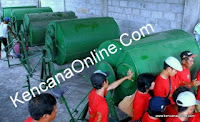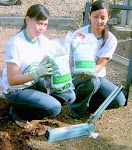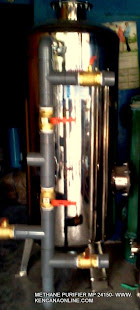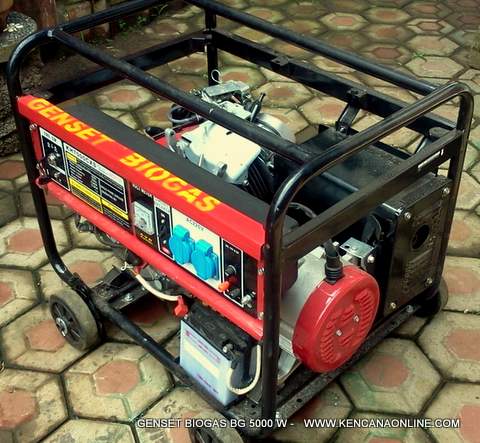

Agricultural
cultivation practices which only consider the results of a moment
without concern for damage effects in the future to make the
destruction of agricultural land fertility due to the elements in the
soil ( C-organic, nutrient contained) transported by the crop and the
effects of excessive use of inorganic fertilizer plant will cause
dependency nutrient intake from the outside environment and the
disappearance of the ability of plants to provide natural nutrients.
Therefore, special treatment is needed to repair and restore the
fertility of the land became productive again, with a combined intake
of inorganic nutrient limited granular-like
compound tablet technology applications ( Gramalet ® ) at
doses in a wise and organic fertilizers and biological ( such as Green
Phoskko ® ) , so that crop productivity will also increase. According
to the Center of Bogor Agricultural Land Resources Research ( 2008) ,
73% of agricultural land Indonesian low organic matter content (
between 0.6 to 2% ) , 23% in the medium ( soil organic matter 2-3% ) ,
and only 4% of the entire land area that is rated to have high organic
matter ( over 4% ) . This condition is not favorable for agricultural
land in tropical areas are buffeted by high rainfall.
 Organic manure as fertilizer i
Organic manure as fertilizer is
not the usual microbiological activity ( inorganic chemistry) that
directly improve soil fertility by adding nutrients to the soil.
Organic fertilizer, biological or microbiological adding nutrients
through natural processes, namely fixation of atmospheric nitrogen,
making the material dissolved phosphorus, and stimulates plant growth
through synthesis of substances that support plant growth.
Microorganisms in microbiological fertilizer restore natural nutrient
cycles of soil and organic material to form soil. Through the use of
microbiological fertilizers, healthy plants can be grown while
improving sustainability and soil health. Farmers need to re-use
biological and organic fertilizer as an appropriate solution to
minimize the adverse effects of chemical fertilizer use has been proven
to have caused a variety of degenerative diseases ( diabetes mellitus,
hypertension, etc.) .

Actually,
in order to meet the needs of the plants will be organic materials,
natural materials ( trash and waste) will experience organic
decomposition ( decomposition) in nature with the help of microbes and
other soil biota. However, the natural composting process lasts longer
and slower. To speed up the composting process, for the benefit of
rapid recycling, composting technology has been developed ( composting)
, both with simple technology ( open windrows) , medium ( open windrows
with aeration) , and
high technology ( Kiln Rotary Composter) .
In principle the development of this technology is based on the process
of decomposition of organic material that is manipulated by the given
microenvironment ( humidity, temperature, moisture content, aeration
and other factors for the decomposition by microbial decomposers) can
take place continuously without stopping.
Decomposition process is optimized in such a way that composting can run more quickly and efficiently. Technology composting ( composting technology)
Technology composting ( composting technology) is
becoming very important, especially to overcome the problems of garbage
and waste ( organic) especially in urban areas, such as to overcome
the problem of trash in commercial areas ( residential areas, malls,
hotels, industrial estates, factories, etc.), garbage and waste
problems in the social area ( schools, hospitals, places of worship,
etc.) as well as problems arising from the existence of organic waste (
food and beverage industry, as well as agricultural waste, sewage farms
and plantations) .
 Compost, as a result of processing waste and organic waste,
Compost, as a result of processing waste and organic waste, a
big benefit for the effort to improve soil structure by increasing soil
organic matter content and will enhance the ability of soil to maintain
soil water content. Microbial activity in soil that are beneficial to
plants will increase with the addition of compost. Microbial activity
helps plants to absorb nutrients from the soil. Soil microbial activity
are also known to help plants deal with disease. Plants are fertilized
with compost also tend to be better quality than plants fertilized with
chemical fertilizers, eg more resistant crops stored, heavier, fresher,
and more comfortable.
Thus, the presence of modern composting machine will support eco-friendly farming and the realization of sustainable agriculture
 Agricultural
cultivation practices which only consider the results of a moment
without concern for damage effects in the future to make the
destruction of agricultural land fertility due to the elements in the
soil ( C-organic, nutrient contained) transported by the crop and the
effects of excessive use of inorganic fertilizer plant will cause
dependency nutrient intake from the outside environment and the
disappearance of the ability of plants to provide natural nutrients.
Therefore, special treatment is needed to repair and restore the
fertility of the land became productive again, with a combined intake
of inorganic nutrient limited granular-like compound tablet technology applications ( Gramalet ® ) at
doses in a wise and organic fertilizers and biological ( such as Green
Phoskko ® ) , so that crop productivity will also increase. According
to the Center of Bogor Agricultural Land Resources Research ( 2008) ,
73% of agricultural land Indonesian low organic matter content (
between 0.6 to 2% ) , 23% in the medium ( soil organic matter 2-3% ) ,
and only 4% of the entire land area that is rated to have high organic
matter ( over 4% ) . This condition is not favorable for agricultural
land in tropical areas are buffeted by high rainfall.
Agricultural
cultivation practices which only consider the results of a moment
without concern for damage effects in the future to make the
destruction of agricultural land fertility due to the elements in the
soil ( C-organic, nutrient contained) transported by the crop and the
effects of excessive use of inorganic fertilizer plant will cause
dependency nutrient intake from the outside environment and the
disappearance of the ability of plants to provide natural nutrients.
Therefore, special treatment is needed to repair and restore the
fertility of the land became productive again, with a combined intake
of inorganic nutrient limited granular-like compound tablet technology applications ( Gramalet ® ) at
doses in a wise and organic fertilizers and biological ( such as Green
Phoskko ® ) , so that crop productivity will also increase. According
to the Center of Bogor Agricultural Land Resources Research ( 2008) ,
73% of agricultural land Indonesian low organic matter content (
between 0.6 to 2% ) , 23% in the medium ( soil organic matter 2-3% ) ,
and only 4% of the entire land area that is rated to have high organic
matter ( over 4% ) . This condition is not favorable for agricultural
land in tropical areas are buffeted by high rainfall. Organic manure as fertilizer is
not the usual microbiological activity ( inorganic chemistry) that
directly improve soil fertility by adding nutrients to the soil.
Organic fertilizer, biological or microbiological adding nutrients
through natural processes, namely fixation of atmospheric nitrogen,
making the material dissolved phosphorus, and stimulates plant growth
through synthesis of substances that support plant growth.
Microorganisms in microbiological fertilizer restore natural nutrient
cycles of soil and organic material to form soil. Through the use of
microbiological fertilizers, healthy plants can be grown while
improving sustainability and soil health. Farmers need to re-use
biological and organic fertilizer as an appropriate solution to
minimize the adverse effects of chemical fertilizer use has been proven
to have caused a variety of degenerative diseases ( diabetes mellitus,
hypertension, etc.) .
Organic manure as fertilizer is
not the usual microbiological activity ( inorganic chemistry) that
directly improve soil fertility by adding nutrients to the soil.
Organic fertilizer, biological or microbiological adding nutrients
through natural processes, namely fixation of atmospheric nitrogen,
making the material dissolved phosphorus, and stimulates plant growth
through synthesis of substances that support plant growth.
Microorganisms in microbiological fertilizer restore natural nutrient
cycles of soil and organic material to form soil. Through the use of
microbiological fertilizers, healthy plants can be grown while
improving sustainability and soil health. Farmers need to re-use
biological and organic fertilizer as an appropriate solution to
minimize the adverse effects of chemical fertilizer use has been proven
to have caused a variety of degenerative diseases ( diabetes mellitus,
hypertension, etc.) . Actually,
in order to meet the needs of the plants will be organic materials,
natural materials ( trash and waste) will experience organic
decomposition ( decomposition) in nature with the help of microbes and
other soil biota. However, the natural composting process lasts longer
and slower. To speed up the composting process, for the benefit of
rapid recycling, composting technology has been developed ( composting)
, both with simple technology ( open windrows) , medium ( open windrows
with aeration) , and high technology ( Kiln Rotary Composter) .
In principle the development of this technology is based on the process
of decomposition of organic material that is manipulated by the given
microenvironment ( humidity, temperature, moisture content, aeration
and other factors for the decomposition by microbial decomposers) can
take place continuously without stopping. Decomposition process is optimized in such a way that composting can run more quickly and efficiently.
Actually,
in order to meet the needs of the plants will be organic materials,
natural materials ( trash and waste) will experience organic
decomposition ( decomposition) in nature with the help of microbes and
other soil biota. However, the natural composting process lasts longer
and slower. To speed up the composting process, for the benefit of
rapid recycling, composting technology has been developed ( composting)
, both with simple technology ( open windrows) , medium ( open windrows
with aeration) , and high technology ( Kiln Rotary Composter) .
In principle the development of this technology is based on the process
of decomposition of organic material that is manipulated by the given
microenvironment ( humidity, temperature, moisture content, aeration
and other factors for the decomposition by microbial decomposers) can
take place continuously without stopping. Decomposition process is optimized in such a way that composting can run more quickly and efficiently. Technology composting ( composting technology) is
becoming very important, especially to overcome the problems of garbage
and waste ( organic) especially in urban areas, such as to overcome
the problem of trash in commercial areas ( residential areas, malls,
hotels, industrial estates, factories, etc.), garbage and waste
problems in the social area ( schools, hospitals, places of worship,
etc.) as well as problems arising from the existence of organic waste (
food and beverage industry, as well as agricultural waste, sewage farms
and plantations) .
Technology composting ( composting technology) is
becoming very important, especially to overcome the problems of garbage
and waste ( organic) especially in urban areas, such as to overcome
the problem of trash in commercial areas ( residential areas, malls,
hotels, industrial estates, factories, etc.), garbage and waste
problems in the social area ( schools, hospitals, places of worship,
etc.) as well as problems arising from the existence of organic waste (
food and beverage industry, as well as agricultural waste, sewage farms
and plantations) . Compost, as a result of processing waste and organic waste, a
big benefit for the effort to improve soil structure by increasing soil
organic matter content and will enhance the ability of soil to maintain
soil water content. Microbial activity in soil that are beneficial to
plants will increase with the addition of compost. Microbial activity
helps plants to absorb nutrients from the soil. Soil microbial activity
are also known to help plants deal with disease. Plants are fertilized
with compost also tend to be better quality than plants fertilized with
chemical fertilizers, eg more resistant crops stored, heavier, fresher,
and more comfortable.
Compost, as a result of processing waste and organic waste, a
big benefit for the effort to improve soil structure by increasing soil
organic matter content and will enhance the ability of soil to maintain
soil water content. Microbial activity in soil that are beneficial to
plants will increase with the addition of compost. Microbial activity
helps plants to absorb nutrients from the soil. Soil microbial activity
are also known to help plants deal with disease. Plants are fertilized
with compost also tend to be better quality than plants fertilized with
chemical fertilizers, eg more resistant crops stored, heavier, fresher,
and more comfortable. 



1 comment:
Pretty! This has been an extremely wonderful post.Thajk you
for supplying this info.
Post a Comment